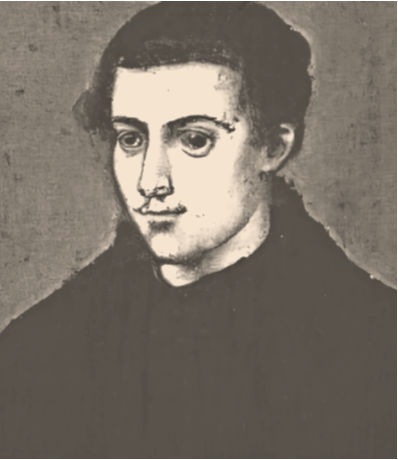José de Orozco (Riobamba, March 18, 1733) was a renowned Jesuit priest and poet. Educated at the University of San Gregorio Magno in Quito, he joined the Society of Jesus in 1748 and devoted himself to both religious service and academic pursuits. However, the expulsion of the Jesuits from Spanish territories in 1767 marked a significant shift in his life. After resettling in Italy, Orozco turned to literature as a means of expressing his feelings of exile and nostalgia, most notably in his poem “Lamentos de la musa de Chimbaraso aflijida con las penas de su destierro,” a deeply nostalgic poem reflecting his longing for his homeland. Among his other significant works, “La Conquista de Menorca” stands out as a monumental epic poem, earning Orozco a place among the great poets of the 18th-century Spanish colonial period.
Early Life and Education
José de Orozco was born on March 18, 1733 in Riobamba, Ecuador, within the Royal Audience of Quito. His early life was that of privilege, coming from an illustrious family, as was common for many Jesuits of his time. He entered the Society of Jesus on August 14, 1748. His novitiate was spent in Quito, where the Jesuit’s San Gregorio Magno University was located. Orozco was ordained as a priest in 1758 and took his final vows on August 15, 1766.
Orozco’s Role in the Jesuit Order
Orozco held a position as an operative and consultant at the College of Ibarra, a city north of Quito. During his time there, the Esquilache Mutiny occurred in 1767, resulting in the expulsion of the Jesuit order from Spanish territories under the reign of Carlos III. Upon arriving in Italy, Orozco, accompanied by his brother Manuel, turned to literary work as a means of enduring exile and bearing the martyrdom that was the church’s payment for all its work on behalf of a crown that was once Catholic but was now under the influence of the Enlightenment.
Exile and Literary Work
Orozco’s life in Italy began on September 8, 1768. He initially spent a month in Sestri caring for ill colleagues before moving to Faenza on October 24, 1768. Here, he continued his teaching career as a professor of philosophy, starting on November 2, 1770. He undertook this work in the training house of the Quito province, which had been relocated to Ravenna due to a royal decree. After the expulsion of the Jesuit order, Orozco faced further hardship with the suppression of the order, which remained active only until August 1773.
The Conquest of Menorca
In 1782, Orozco wrote “La conquista de Menorca” (The Conquest of Menorca) in honor of the Duke of Crillon, who was the conqueror of the island that had previously been under English control. Orozco’s poem is celebrated for its musicality and structure and is considered an epic poem. The dedication to a military battle sets a significant precedent for the works of José Joaquín de Olmedo with “The Battle of Junín” and Numa Pompilio Llona with his poem about “The capture of the Chincha Islands.” It also demonstrated Orozco’s loyalty to the king despite the suffering endured by his order.
Literary Style and Influence
Orozco’s poem “La Conquista de Menorca” falls within the genre of epic poetry, despite some disparity in the quality of its octaves. Comprising 143 octaves arranged into four cantos, the work was highly praised by Juan León Mera, the acclaimed Ecuadorian literary critic of the 19th century, and by Marcelino Menéndez y Pelayo in his study of Latin American literature. These reviews cemented Orozco’s status as a leading epic poet of 18th-century viceregal literature. Together with Juan Bautista Aguirre and Pedro Berroeta, Orozco is considered one of the three great poets of the Royal Audience of Quito in the 18th century. Through his life in Faenza, he became part of the poetic network woven by the expelled Jesuits, which was compiled by Father Juan de Velasco.
Death and Legacy
José de Orozco passed away on October 18, 1786, in Faenza, Italy, but his legacy continues to illuminate the path of Latin American literature. His influential body of work, punctuated by the epic poem “La Conquista de Menorca,” immortalizes his unique perspective on the socio-political dynamics of 18th-century Spanish colonies. Moreover, his profound engagement with themes of faith, exile, and nostalgia provide invaluable insights into the lived experience of Jesuit expatriates during the Enlightenment era. Overcoming numerous adversities, Orozco’s steadfast devotion to his religious beliefs and literary pursuits has shaped a lasting heritage, positioning him among the significant figures of 18th-century Latin American literature.
Selected Poems
- Lamentos de la musa de Chimbaraso aflijida con las penas de su destierro
- La Conquista de Menorca

